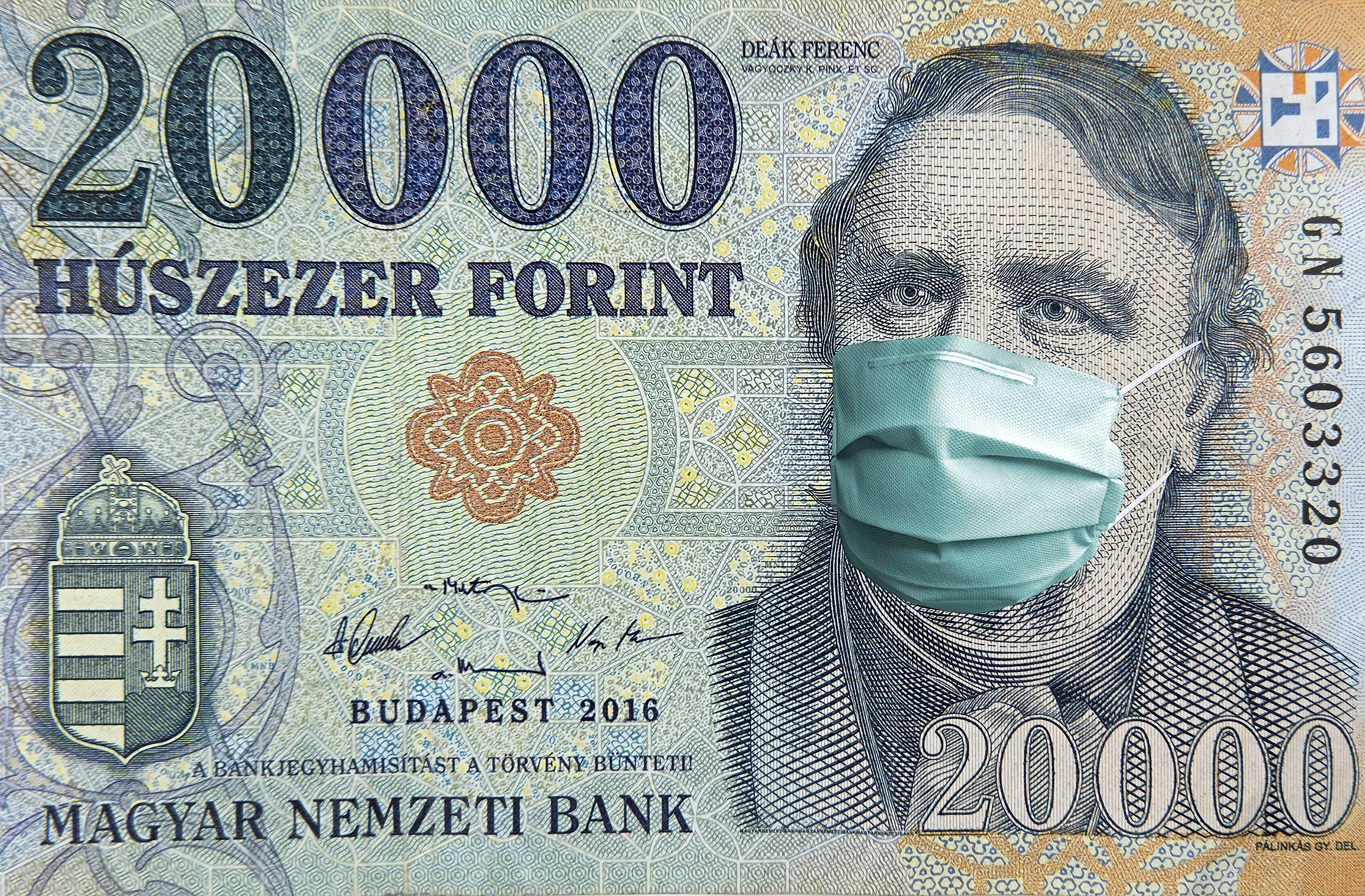MNB Hails Pandemic Response, Charts Path to Recovery

Photo by Space_Cat / Shutterstock.com
The coronavirus pandemic hit the Hungarian economy at a time when its fundamentals were stable, and growth was strong, according to the latest Inflation Report of the National Bank of Hungary (MNB).
A quarterly publication that reports on inflation developments and assesses the macroeconomic developments that determine inflation, it also gives an insight into the monetary policy steps taken by the central bank.
The economic policy pursued over the past decade has contributed to maintaining the country’s macroeconomic balance and has reduced its external and internal vulnerability, MNB writes.
This stronger stance, together with what it calls the quick and effective measures of the government and the MNB, helped mitigate the adverse consequences caused by the first wave of coronavirus to the real economy and the financial markets, MNB says in summarizing its responses.
In spring 2020, MNB introduced a number of monetary policy instruments with the aim of maintaining price stability and ensuring adequate liquidity in the banking system and financial markets. It was also the bank’s intention to have influence to shape long-term yields and flexibility in short-term yields, MNB writes.
In April 2020, MNB launched the Funding for Growth Scheme Go!, with which MNB says it has provided more than HUF 1.8 trillion in funding for the SME sector. Since last spring, 28,000 businesses have benefited from the scheme. More than a quarter of the outsourced volume went to microbusinesses and a third to small companies, MNB writes.
Within its asset purchase program, the central bank has purchased more than HUF 1.77 tln worth of securities and mortgage bonds, according to MNB data. It also purchased HUF 409 billion in corporate bonds under the Bond Funding for Growth Scheme.
Crisis-proof
The programs to provide liquidity for banks have made the financial system crisis-proof, while the moratorium on mortgage instalment payments and the subsidized credit schemes support the continuation of earlier trends in lending during the pandemic situation, MNB writes.
Hungary’s health defense against the first wave of coronavirus pandemic was successful, broadly speaking; however, due to the second wave of the pandemic, the economic recovery is taking longer than earlier expected, the report says. This is affected by many factors, including the pace of the recovery in Hungary’s export markets, as well as the effect of widespread vaccination.
Following negative net exports last year, in line with subdued external demand from 2021, the contribution of net exports to growth will be positive again as a result of the expected increasingly wide application of the vaccine and the ensuing economic expansion in Hungary’s export markets, the report says.
Based on all of the above, the MNB expects the economy to grow by 3.5-6% in 2021 (the unusually wide range is down to the as yet unknowable results of the current third wave of the pandemic in Hungary), by 5-5.5% in 2022 and by 3-3.5% in 2023.
Due to the uncertainty, many companies have postponed or simply not implemented some of their investment projects. This year, however, investment activity is expected to increase again in the household, corporate and government sectors as well, according to MNB.
An expansion in corporate loans will support the recovery of investment activities, while the pick-up in household investment will be boosted by public home creation programs (cheap loans and subsidies for renovations of existing homes, and a reduction to 5% VAT for new builds), MNB says.
The current account balance will improve gradually from 2021, while the country’s net lending position will remain stable as a result of the surplus on the capital account, the report claims. Consequently, the country’s net external debt will decline further in the coming years.
By the end of this year, the government deficit is likely to start decreasing again. After falling steadily since 2011, the government debt-to-GDP ratio rose in 2020 on the back of state sponsored COVID response spending; however, it is likely to shift back on to a downward path from 2021 as the economy recovers and the deficit declines, the publication notes.
Macro Outlook
The macroeconomic outlook continues to be surrounded by both upside and downside risks according to MNB. Its rate-setting Monetary Council highlighted two alternative scenarios around the baseline projection in the December Inflation Report.
One scenario presumes a global protraction of the coronavirus pandemic in which the economic recovery points to a domestic inflation path that is slightly lower than the baseline scenario and to a much more subdued growth path.
In the alternative scenario, featuring an increase in risk aversion vis-à-vis emerging markets, inflation is higher than in the baseline forecast. The Monetary Council also discussed scenarios that assume a strong domestic labor market adjustment, the implementation of competitiveness reforms and a permanent rise in food prices.
Regarding inflation, pricing decisions have shown higher volatility and an unusual seasonal pattern following the coronavirus outbreak; this volatility will continue in the coming quarters, the report notes.
Due to the increase in excise duty on tobacco products at the start of the year and base effects, the consumer price index is expected to be temporarily around 4% in spring 2021, MNB says, a stance that is in line with other analysts’ expectations.
The tax effects of the new measures will lift inflation by an additional 0.4 of a percentage point in 2021 and by 0.1 of a percentage point in 2022, the report says, adding that beyond the moderate external inflation environment, weak domestic demand is also leading to a slowdown in price growth.
This article was first published in the Budapest Business Journal print issue of March 12, 2021.
SUPPORT THE BUDAPEST BUSINESS JOURNAL
Producing journalism that is worthy of the name is a costly business. For 27 years, the publishers, editors and reporters of the Budapest Business Journal have striven to bring you business news that works, information that you can trust, that is factual, accurate and presented without fear or favor.
Newspaper organizations across the globe have struggled to find a business model that allows them to continue to excel, without compromising their ability to perform. Most recently, some have experimented with the idea of involving their most important stakeholders, their readers.
We would like to offer that same opportunity to our readers. We would like to invite you to help us deliver the quality business journalism you require. Hit our Support the BBJ button and you can choose the how much and how often you send us your contributions.







